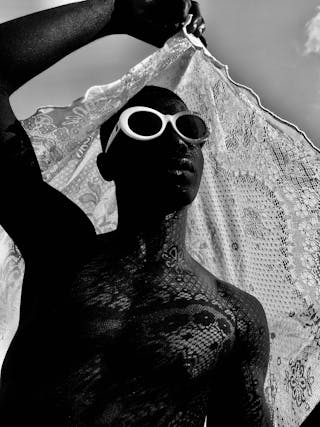The Influence of Birth Order Theory on Dating
Ever wondered why your older sister always seems to take charge in your relationships? Or why your youngest brother is always the life of the party on dates? Birth order theory may have the answers you're looking for. It's fascinating to see how the order in which we're born can impact our dating dynamics. If you want to dive deeper into this topic, check out this article on the intriguing link between birth order and dating behavior. You might just gain some insight into your own relationship patterns.
When it comes to dating, there are a multitude of factors that can influence our behavior and preferences. One lesser-known but significant factor is birth order theory. This theory suggests that the order in which siblings are born can have a lasting impact on their personalities, behaviors, and relationships. In this article, we'll explore the concept of birth order theory and how it may influence dating.
Discover the best escort girls in Houston and unlock a magical experience by visiting luscioussex.com and trying it out for yourself.
Understanding Birth Order Theory
Check out this exciting shemale porn promo and discover a new and thrilling experience.
Birth order theory, popularized by psychologist Alfred Adler, suggests that the position a person holds in their family can shape their personality and behavior. According to this theory, firstborns are typically more responsible, ambitious, and organized, while middle children tend to be more sociable, diplomatic, and adaptable. Youngest children are often seen as charming, outgoing, and rebellious, while only children may exhibit a combination of traits from all birth orders.
Explore a dating site tailored specifically for farmers
The Influence on Dating
So, how does birth order theory relate to dating? Well, the traits associated with each birth order can impact how individuals approach romantic relationships. For example, firstborns may be drawn to partners who share their sense of responsibility and ambition. They may also be more likely to take on a leadership role in the relationship, making decisions and taking charge.
Middle children, on the other hand, are known for their social skills and adaptability, which can make them great communicators and compromisers in relationships. They may seek partners who are equally sociable and open-minded, and they may be more inclined to seek harmony and balance in their relationships.
Youngest children, with their outgoing and rebellious nature, may be attracted to partners who are fun-loving and adventurous. They may also be more inclined to challenge traditional relationship norms and seek excitement and spontaneity in their romantic pursuits.
Only children, who often possess a mix of traits from all birth orders, may be more flexible and independent in their dating preferences. They may be comfortable taking on a variety of roles in a relationship and may be drawn to partners who value their individuality and self-sufficiency.
It's important to note that birth order theory is not a strict rule that applies to everyone. While it can offer insight into certain patterns of behavior, individuals are complex and multifaceted, and their personalities are shaped by a variety of factors beyond just birth order.
Navigating Relationships with Birth Order in Mind
For those who are aware of their birth order and its potential influence on their dating preferences, it can be helpful to consider how these traits may impact their relationships. By understanding the tendencies associated with their birth order, individuals can better communicate their needs and expectations to their partners, as well as recognize and appreciate the unique qualities that each person brings to the relationship.
It's also important to remember that birth order is just one piece of the puzzle when it comes to understanding ourselves and others. While it can provide some valuable insights, it's essential to approach dating with an open mind and a willingness to explore the complexities of each individual, regardless of their birth order.
In conclusion, birth order theory offers a fascinating lens through which to view our personalities and behaviors, including how we approach dating and relationships. While it's not a definitive rule, it can provide valuable insights into the dynamics of romantic partnerships and how individuals may navigate their connections with others. By being mindful of the potential influence of birth order, daters can gain a deeper understanding of themselves and their partners, fostering more meaningful and fulfilling relationships.
- https://free-casual-hookup-apps.wsmchicago.com/posts/what-does-demisexual-and-demiromantic-mean/
- https://dating-for-free.getweps.com/posts/polyamory-diaries-11-i-love-my-wife-and-my-girlfriend/
- https://sex-guide.themountaintopplay.com/posts/how-to-lick-a-girl-out-how-to-eat-a-girl-out-oral-sex-tips/
- https://discreet-hookup-sites.stylebytes.net/posts/lesbian-wedding-planning-advice-and-tips-samesex-lgbtq-weddings/
- https://online-discreet-dating-app.datingapps.shop/posts/what-trans-and-nonbinary-people-taught-me-about-love-and-sex/
- https://best-dating-platform.andreachimenti.com/posts/handcuffs-how-to-use-handcuffs-during-sex-in-the-best-way/
- https://best-local-dating-platforms.gatective.com/posts/pansexual-meaning-and-definition-what-is-pansexual/
- https://free-hookup-site.patternismovement.com/posts/how-to-make-missionary-sex-better-according-to-13-guys/
- https://best-discreet-dating-site.prettygirlsmakegraves.com/posts/how-straight-people-can-be-better-to-their-bisexual-friends/
- https://free-casual-dating-websites.andreachimenti.com/posts/12-of-the-best-sex-machines-to-experiment-with/
- https://top-discreet-dating-apps.warriorkingsbattles.com/posts/lubricant-best-sex-lube/
- https://best-local-encounters-websites.warriorkingsbattles.com/posts/sex-and-the-city-inspired-sex-toys-to-shop-now/
- https://casual-dating-platforms.theimmigrant-lefilm.com/posts/woman-chops-off-her-cheating-husbands-penis-twice/
- https://top-discreet-dating-apps.hankwilliamsmothersbest.com/posts/what-its-really-like-to-be-a-bisexual-woman/
